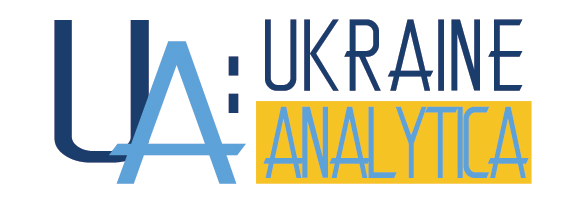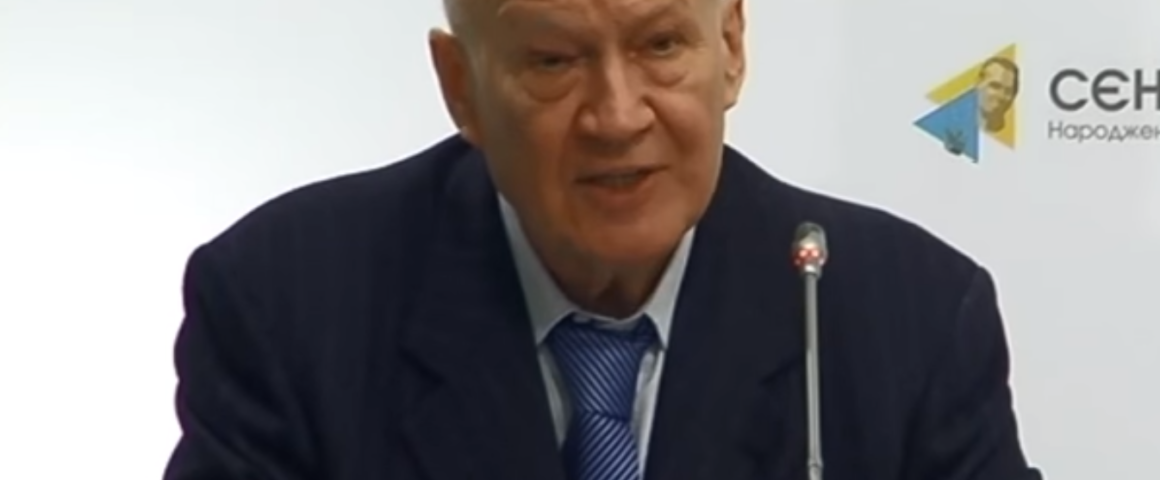Interview with Director of the National Institute for Strategic Studies Dr. Volodymyr Horbulin
What, In Your Opinion, Do “Frozen” Conflicts in the Post-Soviet Space Have in Common?
“Frozen” conflicts in the post-Soviet space have become the consequence of exacerbating ethnic and linguistic tensions with the crucial role of the Russian Federation in it. Russian military presence in conflict zones and further occupation of disputed territories was legitimized under the pretext of these conflicts’ resolution. At the same time, Russian economic influence on these territories has been strengthening, as well as the process of Russian citizenship granting was established. Afterwards, unrecognized states, created as a result of “freezing” (Abkhazia, South Ossetia, Transnistria), have become the zones of “controlled chaos” whereby Moscow has got leverage over domestic situation in countries embarked on the path of democratic transition.
After 2014 – the year of Crimea annexation and occupation of a part of Donbas, the Russian Federation has continued the transformation of the post-Soviet space into a regional conflict zone, which is dangerously merging with the Middle East regional conflict zone, threatening global peace and security. That is why resolution of the Crimean and Donbas problems, which did not have ethnic or linguistic preconditions, became closely intertwined with the problems of Transnistria, Abkhazia, South Ossetia, and Nagorno-Karabakh. All these conflicts are related to each other and have a common source – the imperial nature of Russia considering itself a regional hegemon.
Now, prerequisites for multilateral diplomatic dialogue among the post-Soviet states are brewing, which aims to support peace and security in the post-Soviet territories. Negotiations on Donbas and Crimea may become the beginning of a wider regional negotiation process, which would cover the whole post-Soviet space and would be held in the form of international conference. Moldova, Georgia, and Ukraine, being victims of the Russian aggression, have the full right to launch such a process, and they have diplomatic opportunities to do it.
How Long Do You Think the Conflict in Eastern Ukraine Will Last?
Ukraine remains a priority of the Russian foreign policy. The Kremlin spent considerable resources on pursuing a “hybrid war” against our state.
The Russian government does not abandon hope for success of the “long game” and expects to reach its aim to establish a proxy government in Ukraine in several years. To this end, financing of pro-Russian political forces, support for pro-Russian non-governmental bodies, certain experts, and humanitarian projects, etc. are being enhanced.
At this stage, the Kremlin’s aim is to create turbulence in all spheres of the Ukrainian life. One of them is the international sphere (by means of “reconciliation plans”), another – economic (through increasing the complexity of economic relations within Ukraine), the next one is the political realm (agitation for re-elections at all levels). There are plenty of such spheres. We manage to tackle a lot of these challenges. But not all of them. And this is that very problem which has not been solved within the security and defence sector reform. Although our Western partners have actively helped us during these years, saying we do not have problem areas would be a big exaggeration.
The war in Donbas should be considered through this lens. The current state of the conflict in the east proves that the Kremlin does not need this region as a part of Russia, and in fact, the conflict remains a way to weaken Ukraine. Attempts to arrive at a political solution face Russia blocking any initiative to promote rapid reintegration of this region into our state. The Kremlin is interested in the creation of a specific “conflict trap” – consolidation of existing contradictions, establishment of a false identity in the uncontrolled territories, and maximal involvement of the population in the cooperation with the occupation regime.
For the three years of the conflict, Russia has not managed to find ways to exploit these terrorist groups in any other dimension but military. That is why the only way out of the stalemate for Russia is a new escalation or, at least, a threat to do it. It does not matter whether the threat is real or is just a way to induce us to “cooperation” by this means.
Meanwhile Russia keeps seeking any equivalent of the “Helsinki Final Act 2.0”. The expectations of the Russian government to make a “big deal” with Western states do not seem to be met. Therefore, in the short term, confrontation is likely to be continued.
Can “Freezing” of the Conflict in Donbas Be Considered as an Alternative Option to Its Solution? Is It Beneficial for Ukraine?
“Freezing” of the conflict in Donbas is advantageous, primarily, for Russia. Its essence lies in the fact that the districts that suffered from the conflict the most, the so-called “DPR” and “LPR”, will remain a “burden” for Ukraine. Under this scenario, economic relations between these territories and the rest of Ukraine should be restored, and hence Ukraine will have to take the responsibility for economic recovery of the destroyed areas of Donbas. Meanwhile, a proxy regime controlled by Russia will de facto operate in Donbas. It will try to influence Ukrainian foreign and domestic policy by pursuing interests of another state.
In case of implementation of this scenario, Ukraine will obviously slow down on its way to Europe, get a source of political instability as well as economic load represented by the “damaged” dependent regions. We should not expect a quiet life, as the conflict will smoulder, destabilizing the situation by the threat of return to its active phase.
Meanwhile, termination of military actions in Donbas and “reconciliation” under this scenario will give ground for European countries to lift the sanctions against Russia and its political leaders and to restore economic ties, which will contribute to Russian economic growth. At the same time, leaders of the European countries will get the opportunity to shift their attention to tackling domestic problems in the EU. It will facilitate the increase of their political ratings instead of the growth of “fatigue” caused by the continuation of the Russian-Ukrainian conflict.
Although such a scenario provides a rapid cessation of hostilities in Donbas, in the long run, Ukraine will remain an unattractive state of permanent crisis with a considerable number of various international organisations’ representatives, humanitarian aid trade, smuggling, illegal arms and drugs trafficking, and thousands of Blue Helmets on the demarcation line. It is unknown how long the conflict will remain in the “frozen” form as well as the consequences of that. Historical experience proves it may last for decades and, finally, Ukraine will turn back to the starting point, beginning a new circle of antagonism.
Which Conflict Experience Has the Ukrainian Side Studied? What Parallels Do You See?
The war in Donbas is a unique conflict due to the scope of confrontation, geopolitical consequences, and international diplomatic efforts to solve it. The conflicts where the Russian impact is considerable (Transnistria, Nagorno-Karabakh, Abkhazia, South Ossetia) are the most similar to it. The existence of permanently unstable areas in the post-Soviet space let the Russian Federation maintain additional opportunities to realize its geopolitical interests.
The Croatian experience of conflict resolution can be an example for Ukraine. Zagreb managed to get the occupied territories back after a well-planned military operation. But in this case, Croatia faced confrontation with a rather weak Serbia, which can hardly be compared to the armed-with-nuclear-arsenal Russia, maintaining considerable military contingent on the border with our state.
The experience of these and other similar conflicts shows that the use of international negotiation formats and the mediation of international organisations or individual states is a necessary, but not always effective, measure to prevent or resolve such conflicts and mitigate their consequences. That is why Ukraine should, first of all, rely on itself and be ready to take decisive actions under favourable conditions for the restoration of its territorial integrity.
What Are the Lessons of the Ongoing Conflict for Ukraine?
The example of Ukraine shows what can happen if Russia is not repelled on time; what happens if Russia is given the opportunity to sponsor politicians, to form your information space at its own discretion, to promote its agents of influence to public offices (who start to destroy the system of public administration from the inside). We lived through all of this and paid dearly for our credulity and unwillingness to look at the world without “rose-coloured glasses”. We are ready to do our best so Europe and the whole world will not have to pay the same price.
In the meantime, Ukraine is in a unique situation. We did not just experience a new model of aggression from the Russian side, but manage to defend ourselves, to develop mechanisms to counter the most aggressive methods of hybrid attacks, while continuing trench warfare against a much stronger adversary. That is why our experience not only deserves close scrutiny (as NATO bodies and representatives of certain Eastern European states have already done) – it is the only one in terms of assessing the threats with which the world (and especially Europe) will have to deal in the near future.
Our main task, simple and concrete, is to survive this war; the second one is to get out of it being much stronger; the third – to teach our partners (who want it) to fight; and the last one – to join forces with those who are ready to resist as we do.


